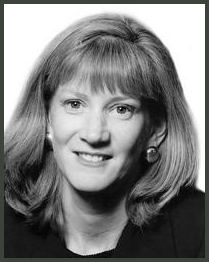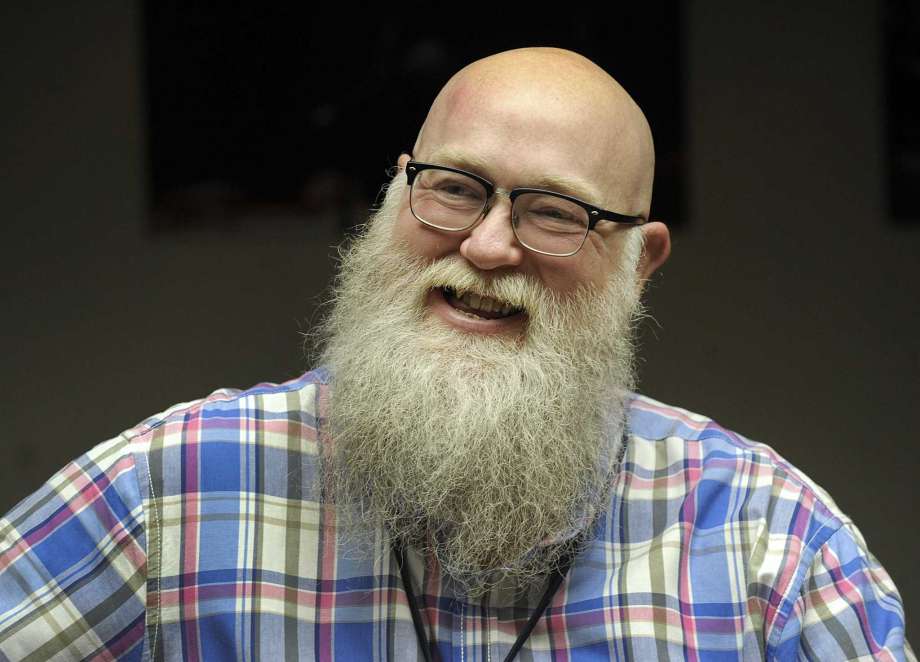From Paddi's Desk
by Paddi LeShane

I am woman, hear me roar!
Okay, I'm not really the roaring type. However, with Sunday, March 8th being infamous as International Women's Day, I thought I'd use that as my hook to get you up to date on some interesting happenings.
Started in 1975, The United Nations created International Women's Day on March 8th in the International Women's Year, 1975. In 1977, the United Nations General Assembly invited member states to proclaim March 8th as the UN Day for women's rights and world peace.
Earlier this week, the University
of Saint Joseph held an early celebration by inviting the current Ambassador to Jordan, Dina Kawar, to speak before the Women's Leadership Center event. Ambassador Kawar was also honored as the first Arab woman to lead the United Nations Security Council by the CT Senate. Ambassador Kawar discussed her personal leadership journey, the issues facing women around the world and the role that women's advancement will play in shaping our global future. It was fascinating, especially her inside stories about being a female within the UN.
March 8th also is a day which marks a call to action for breaking the glass ceiling for women to be able to be who they want to be, achieve their wildest goals and lead the way for women and girls who follow in their footsteps.
In the CT legislature, the Women's Caucus, led by Rep. Michele Cook (D) and Rep. Christie Carpino (R), are planning a reception on May 1st to celebrate the 125th anniversary of the first women to be elected to a state legislature, which happened in 1894 in Colorado. What's amazing is that they were elected 25 years
before women got the right to vote. So maybe they roared a bit!
In the fall of 1920, after the first CT election right after the 1920 adoption of the constitutional amendment giving women the right to vote, CT voters elected five women to the CT House of Representatives. In 1925, they elected the first woman to the CT Senate. The May 1st celebration will recognize those six women, the four women (2 Democrats, 1 Republican and 1 Independent) who served as Governor or Lt. Governor and the 62 women currently serving in the CT General Assembly. Digging up some background on the six historical women in CT legislative history has been quite revealing. One lived to be 103, another served as a pastor, another was a woman of "charitable good," another has a living relative in Miami, another never married or had children and the final trailblazer was active in the National Girl Scout movement!
Nationally, while the battle cry in the 2016 election was all about shattering glass ceilings, many thought this election would see some more cracks. It's ironic that in the year celebrating the 100th anniversary of the right to vote for women, only one female candidate remains in the presidential Democratic primary. With Super Tuesday's results, it didn't fair well for any female candidate that remained standing. Yikes, what's happening?
Well in 2018, women represented 53% of all registered voters and men only 47%. According to national data, in 2018, 55% of women registered to vote did and 52% of men registered to vote did. So if six women announced their candidacy for president in 2020, the very next election after Hillary Clinton came as close as a whisker to besting President Trump, why aren't there more women still running for the highest office? Can't blame anyone but us!
Guess more of us need to really start to ROAR!
|
|
CT Agency Corner
Will Marijuana Legalization Actually Affect the Budget?
by Michael Johnson
Between enforcement of the laws, increased testing for drivers and new regulatory departments, a big question still remains if legalizing marijuana will actually produce the kinds of revenue legislators at the Capitol have discussed.
Everything obviously depends on the surrounding state policies (currently Massachusetts and Vermont are the only states in New England that have fully legalized recreation marijuana) and the overall price of the drug. As seen in a report that was issued last summer, there's been discussion showing that relying on consistent revenue from selling it may not be as reliable as one might think.
The advantages of legalizing though on the budget side are also hard to ignore. CT decriminalized less than half an ounce of marijuana in 2011. but there would be even more savings from not having to judicially process those carrying large quantities of marijuana. In addition, one only has to look at the lines in Massachusetts dispensaries being hours long to realize that there will be some potential revenue gain from legalization.
The questions still remaining are the following:
(1) Will CT adopt a self-grow model for certain quantities and how will that be enforced?
(2) Will be DMV and DCP be able to adopt a compatible test to determine who is driving while under the influence of marijuana?
(3) How long will it take to fully adopt marijuana legalization? Even after the legislature in 2012 legalized medical marijuana, the program itself still took another three years to select growers and implement dispensaries.
(4) What will the locations be for dispensaries in CT considering the fact that many municipalities have already passed moratoriums from dispensaries being located in their towns?
This and many other questions are still being discussed but there is certainly an increased awareness of this issue this year!
|
|
 |
Did You Know?
This Week in CT History
February March 5th, 1860
Abraham Lincoln Speaks in Hartford
Even though it was a crucial presidential election year in 1860, the two major political parties had yet to select their running candidates. For the Republican party, a clear front-runner had emerged on soon with Abraham Lincoln.
Once word of Lincoln's dazzling Cooper Union speech reached neighboring states, the senator was inundated with requests to visit other cities throughout the Northeast to rally support for fellow Republican candidates. CT Republicans joined the chorus, inviting Lincoln to speak in Hartford to boost incumbent Republican governor William Buckingham's reelection campaign.
Lincoln arrived in Hartford the evening of March 5, 1860, and was immediately brought to City Hall, where he was introduced by Governor Buckingham to a packed house. The rising political star then proceeded to deliver a two-hour speech on "the slave question," which he called "the all-pervading question of the day."
The next morning, Lincoln met with CT Republican Gideon Welles, whom he would later select as his Secretary of the Navy after winning the presidency in November. Later that year, CT voters went on to reelect Governor Buckingham and cast their lot with Abraham Lincoln, helping to elect him the 16th President of the United States.
|
|
|
|
 |
|
Municipal
Roundup
by Ryan Bingham
A combination of cities and towns in Connecticut are concerned about the expensive yet important inquiry into the replacement of chemicals in firefighting foam and similar products.
Prior to the legislative session, the Governor created a task force to address how the state should respond to these perfluoroalkyl and polyfluoroalkyl substances, collectively called PFAS toxins, often referred to as "forever chemicals." PFAS are found in the firefighting foam which have reached their way into underground aquifers and public water supplies. Municipalities worry that their water supply may be contaminated beyond acceptable levels, as they have already been found in drinking water systems in Greenwich, Willimantic and Enfield.
Governor Lamont recently allocated approximately $2 million in order to help remove these substances through a buy-back program, along with more than $857,000 proposed in his budget for replacing firefighting foam and planning and testing for chemicals in statewide surface water. While the problem is now being addressed, many worry that it is not enough.
Attempting to test new foam substitutes and remove the current version goes beyond the budget proposed, and towns and cities across Connecticut hope for more relief from businesses and the state. With a greater emphasis on green and clean environmental policies, avoiding contaminating our water supply, beyond how it may already be contaminated, is of the utmost importance as voiced by the administration. The chemicals found in the foam have also been found in our carpets, cooking ware, and around food items. Many environmental groups and municipalities are hoping that Connecticut takes the example of other states who have spent or plan on spending millions of dollars to clean up their communities when it comes to these harmful chemicals.
|
|
 |
|
2020 Behind the Scenes
by Chelsea Neelon
This week, we featured State Representative William "Bill" Buckbee of 67th House District.
 What legislation are you most proud of getting passed?
What legislation are you most proud of getting passed?
- I was so very proud of the first budget we passed that the Governor decided to veto. To have a truly bipartisan budget go through the House and Senate that included some excellent dialogue with colleagues, it was a proud moment.
What is one of your favorite memories as a legislator?
- There are many. Taking our oath, speaking on the floor for the first time ... so many wonderful moments. However, the best has to be when the Speaker of the House recognized my "Schoolhouse Rock" shirt and I sang "I'm only a bill" on the House floor. How often can anyone have fun like this in the chamber? Truly memorable.
What is your favorite late night session snack?
- This is a tough call, as the snacks are less what we plan and more of what is there. I prefer to keep it healthy when I can. Rep Cummings always has cherry tomatoes which are great, but I'd say a banana and an iced tea. Not sweet tea, but iced tea, or some milk brought from Kimberly Farms in my district.
|
|
 |
 |
 |
|
 |
|